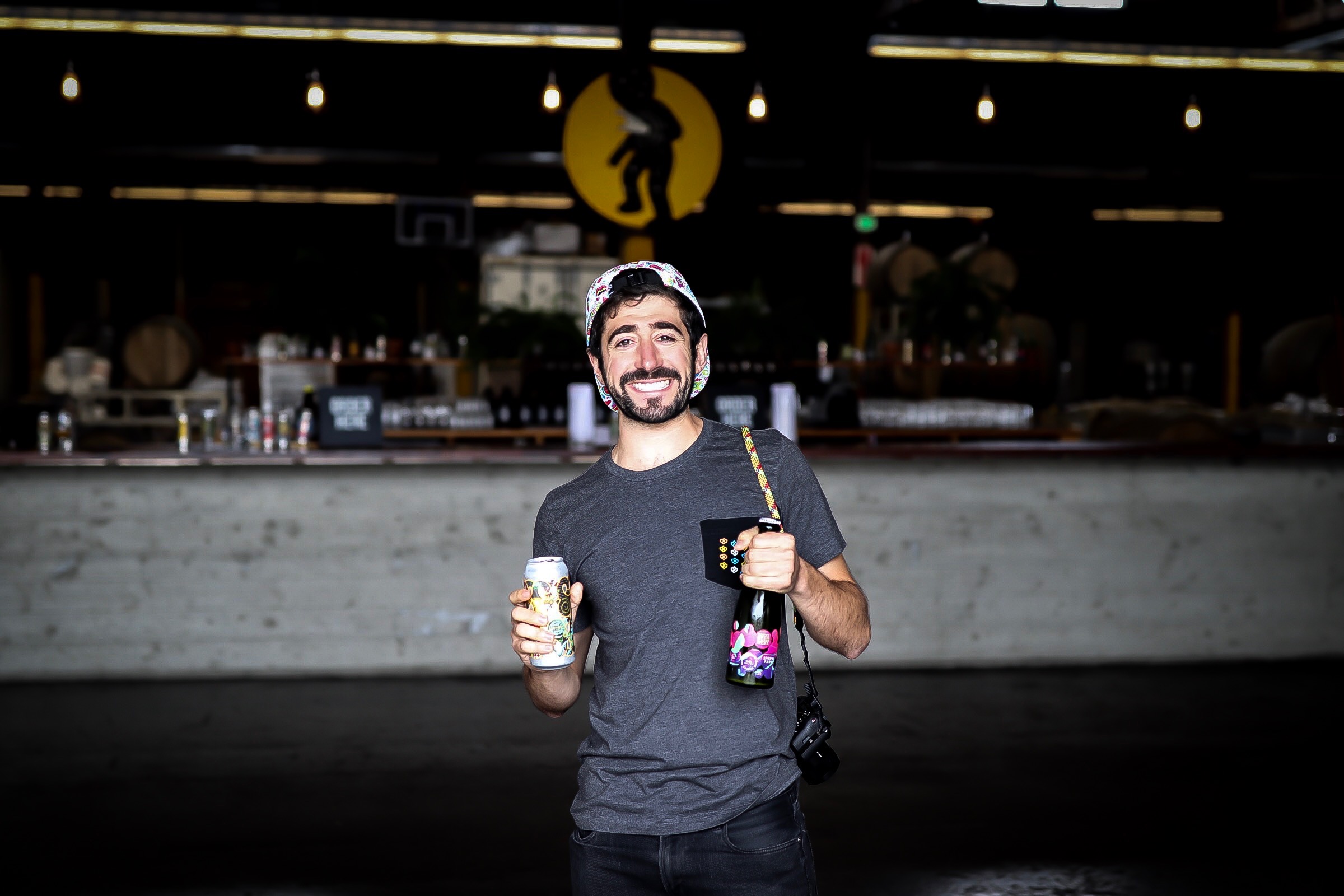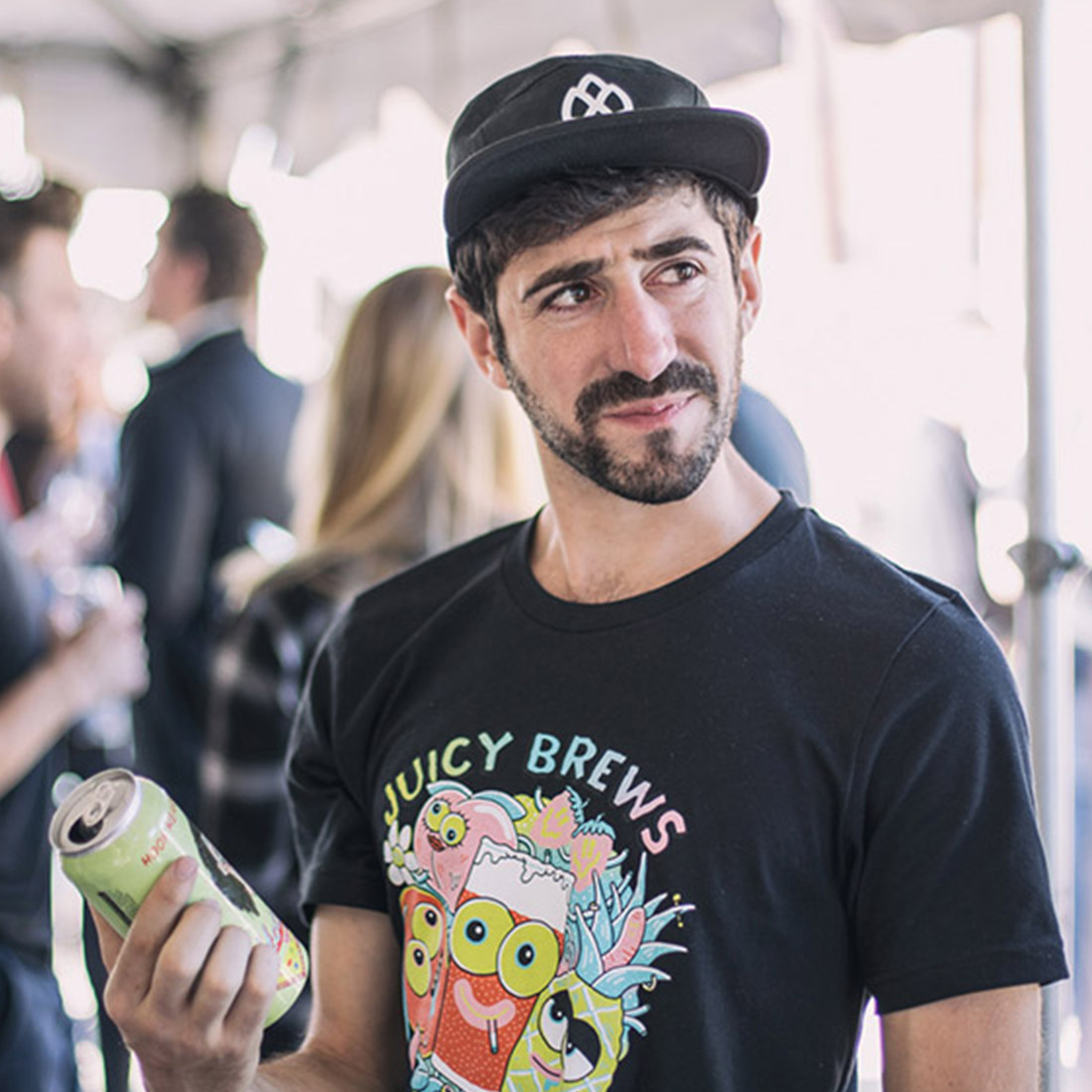Shop
The Next Chapter, Or: Why I Sold Hop Culture
Hop Culture has been acquired by Next Glass, Inc.
Hey! This is Kenny Gould, founder of Hop Culture. If you haven’t heard by now, Hop Culture recently sold to Next Glass, the same company that owns Untappd, BeerAdvocate, and Oznr.
It’s pretty wild news.
If you’re reading this, I’m going to assume you have a vested interest in knowing why I made the decision to sell Hop Culture. So buckle in, because that’s exactly what I’m going to explain. Apologies in advance for the long piece… I’ve got a lot to say!
But first — know that I’m not going anywhere. Neither is my team. Although they’re not regularly in the limelight, Hop Culture Managing Editor John A. Paradiso and Head of Partnerships Grace Weitz each played essential roles in Hop Culture’s growth and development, and we all plan to continue our work with the company in expanded roles.
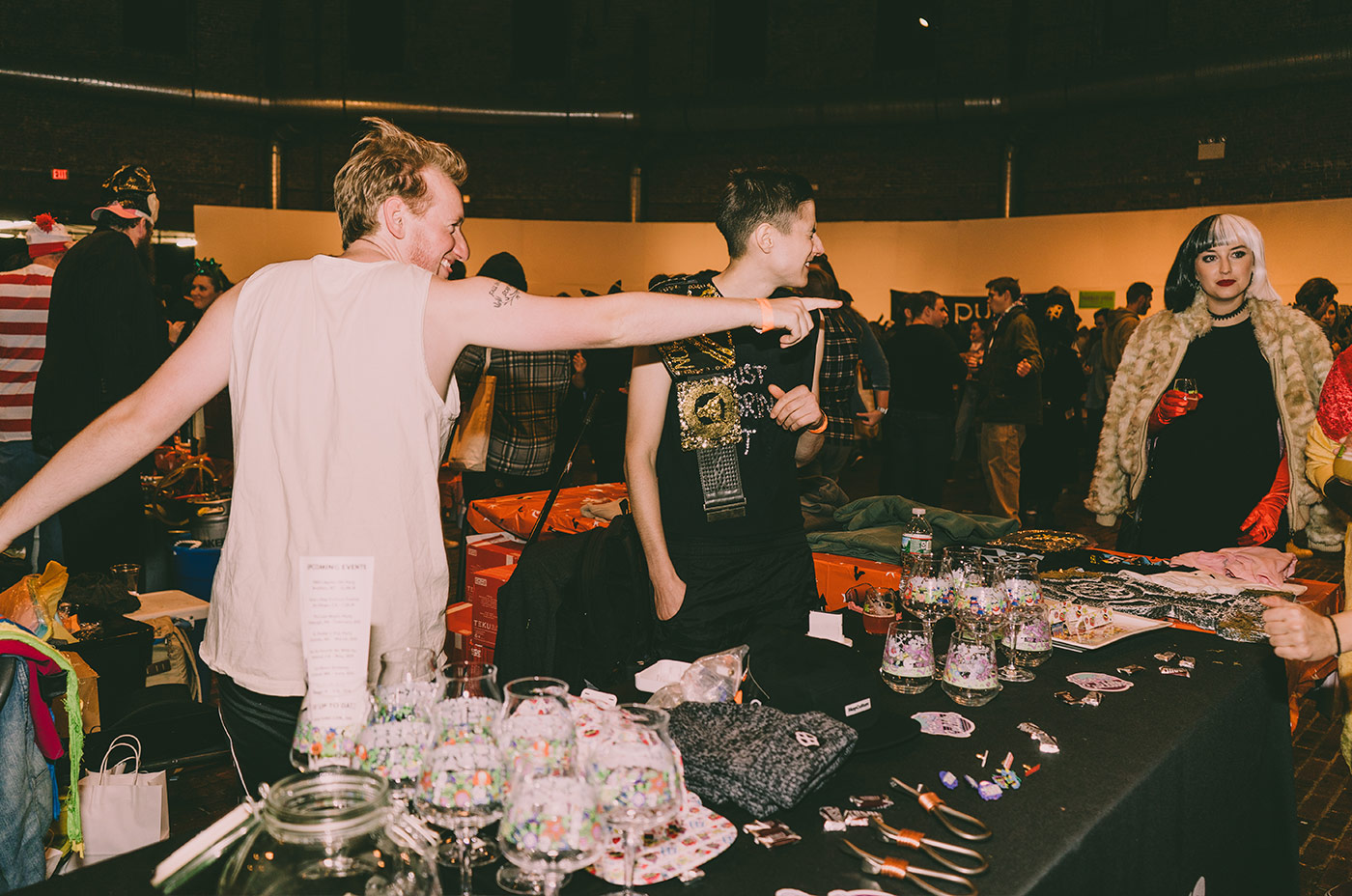
John and Grace at Spooky Brews
Additionally, thank you. The past four years have exceeded all expectations I had for an exciting life. And I’ve been moved and inspired by every single person I’ve met along the way. From brewers to distributors, from retailers to fans and everyone in between, I’m in your debt. This ride has been nothing short of incredible.
And the best part? We’re only getting started.
Hop Culture: The Early Years
If you want to go all the way back, Hop Culture started at Duke University, where — in 2009 — I took over a club called Beer of the Week. At the time, I was a freshman, and the club was run by a senior named David Rotberg.
Rotberg’s sister had babysat for me and my siblings when we lived in Charlotte, North Carolina, during my middle school years. She’d told her brother to watch out for me when I got to school. So when I got to Duke, Rotberg took me under his wing. Then, when he graduated, he passed me his club (and homebrewing equipment).
I’ll forever remember and continue to celebrate January 17th, 2017, the day we published our first piece of content. During our second birthday in 2018, I was in New York City and wore my favorite Wacko Maria leopard pattern bomber jacket to drink beer and eat cake at As Is on Tenth and 50th in Hell’s Kitchen.
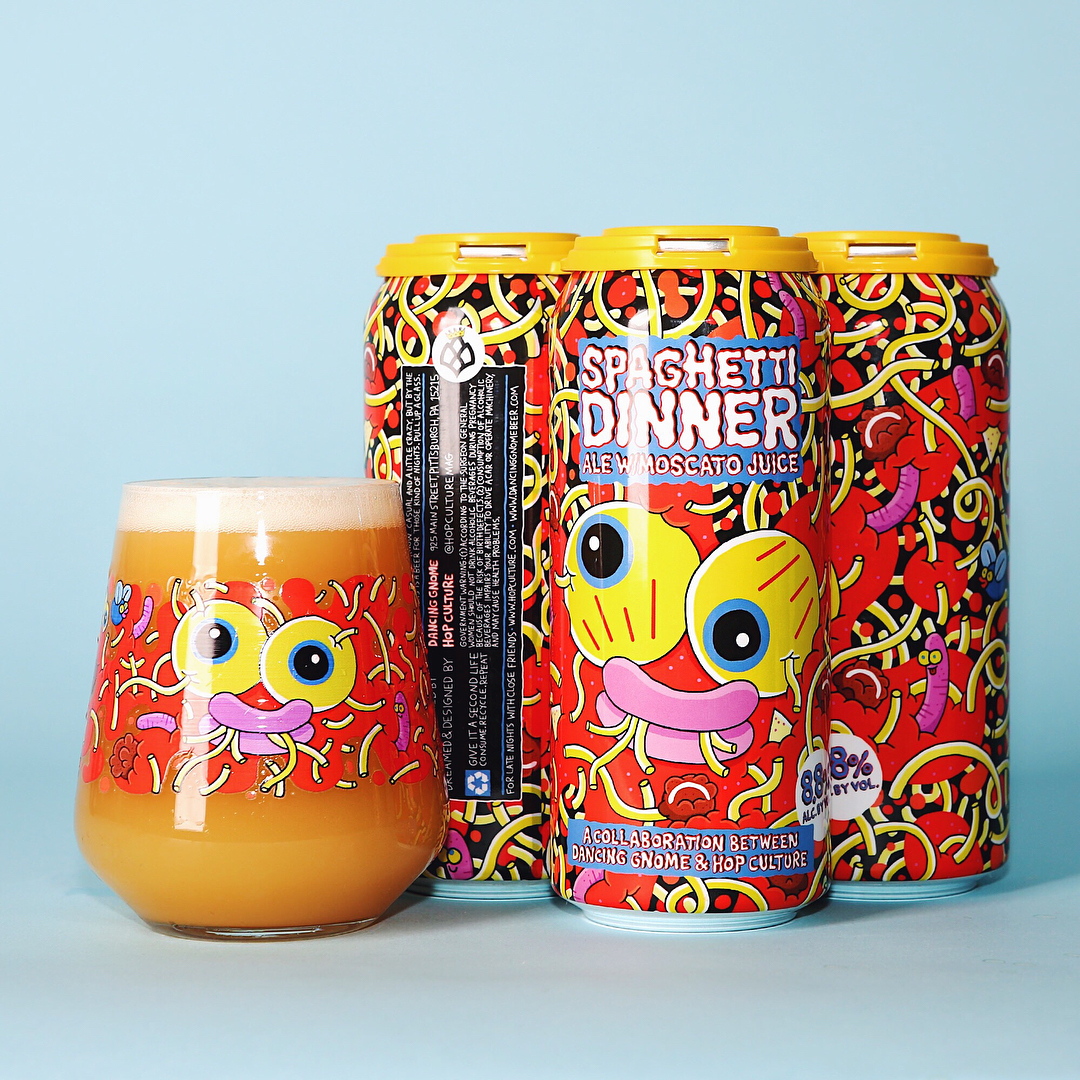
Hop Culture collab beer with Dancing Gnome
For those who don’t know, Hop Culture started as a digital beer magazine. Since 2016, we’ve grown an event series, a merch line, and we’ve even made our own beers. But at the beginning, when I was working out of my studio apartment with the help of a half dozen University of Pittsburgh interns, we were an online publication. Plain and simple.
We had no business model because I had no business experience. Prior to starting Hop Culture, I’d worked as a journalist for publications like Gear Patrol, Men’s Health, and Thrillist. So, for a couple months, we were just a glorified blog. We covered independent craft breweries for no reason other than the fact that it was absolutely fun.
Hop Culture Becomes A Business
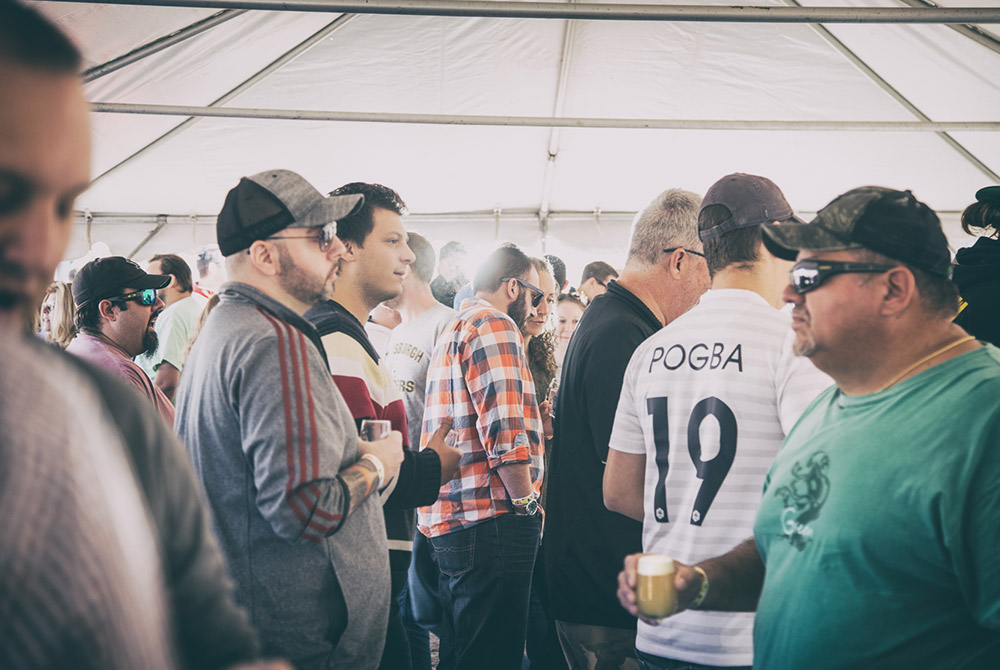
The First Juicy Brews Festival
Everything changed in October of 2017, when we threw our first beer festival with Dancing Gnome Brewery in Pittsburgh. I’m always tickled when I meet people who attended that first festival. Because we’d never thrown an event before, we had no conception for what it should look like. So we created the type of festival we’d like to attend. An outdoor party with a dozen of our favorite breweries, good food and music, and positive vibes.
Over thirty festivals later, we’re still re-capturing the joy, authenticity, and fun of that first event. In hindsight, it was a perfect distillation of everything we value.
The original Juicy Brews changed the game because it showed us a path toward financial viability. In the couple months from January 2017 to October 2017, I’d toyed with the idea of turning Hop Culture into my full-time gig, but I didn’t see how it was possible.
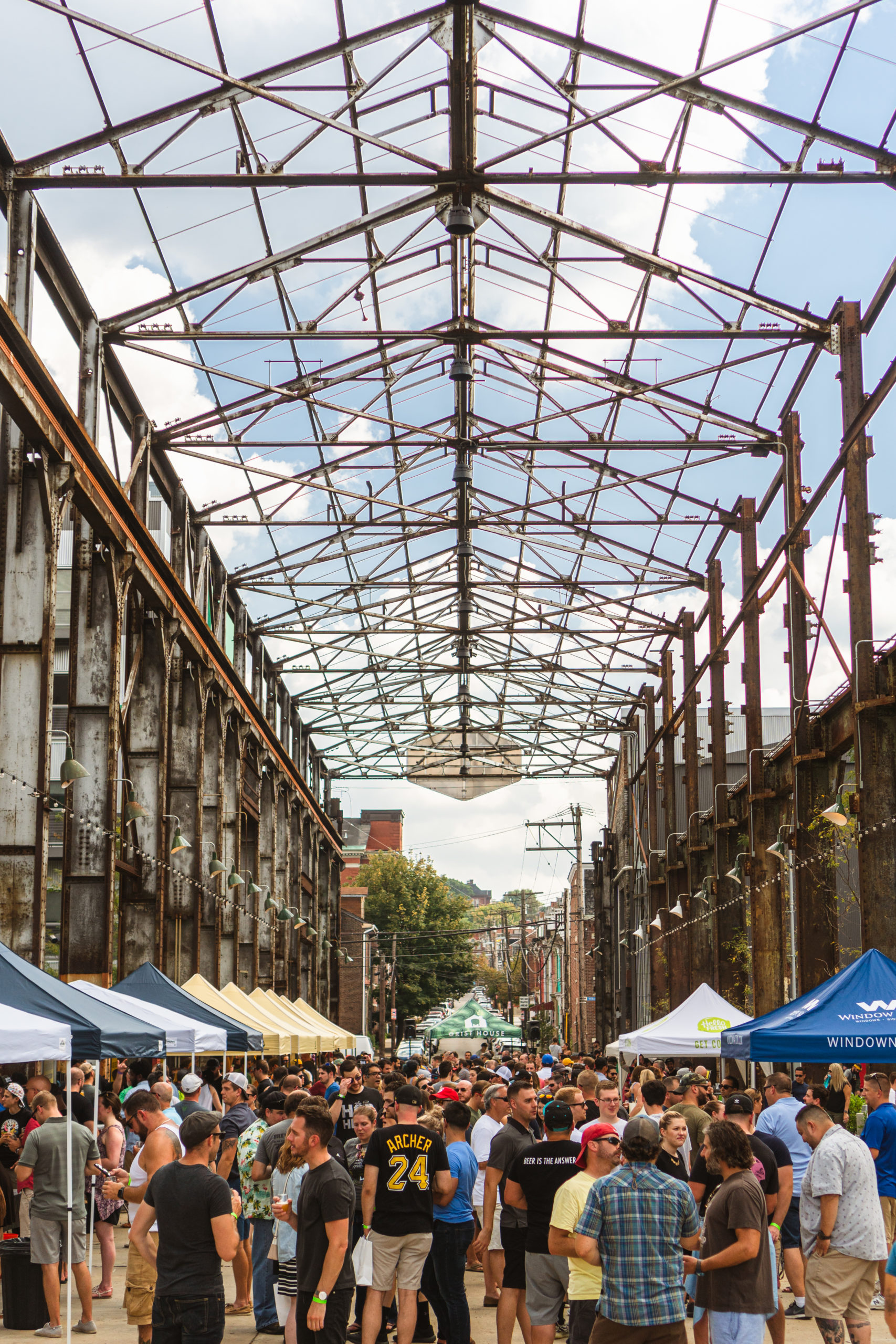
Juicy Brews Birthday Homecoming
Now, we had a way. On that first event, we only took home a small profit, but it was more than we’d made with anything else we’d tried. So two months later, we sold out a second festival, this time in New York City. And two months after that, we were in Columbus, Ohio.
And then Tucson, Arizona. Then back to Pittsburgh. After that, Richmond, Virginia. And after that… well, you get the idea.
Hop Culture: The Glory Years
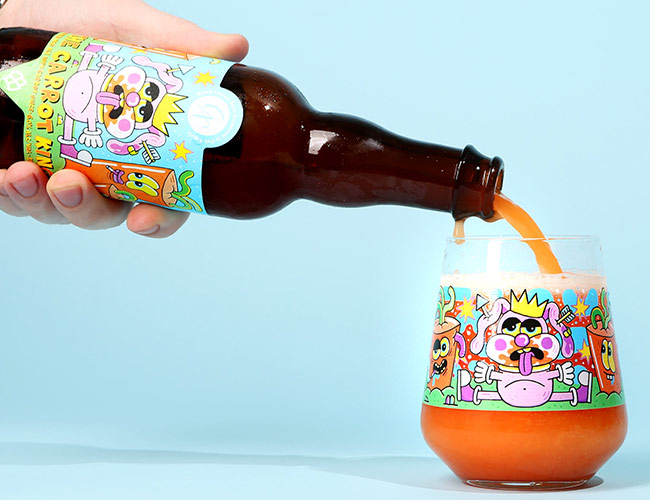
Hop Culture collab with Cellador Ales
After the uncertainty and anxiety of 2017, the years of 2018 and 2019 brought a bit more security. In 2018, I moved from Pittsburgh back to New York. There, we hired our first employees and codified our mission and values. We built our merch program. Seemingly overnight, our Instagram following exploded, and finally — finally — advertisers seemed interested in what we had to offer.
Selling out the OG Juicy Brews was fun, but 2018 brought a sense of growth that allowed me to better enjoy the entire experience. Although we weren’t financially secure — not by a longshot — we at least had direction. Every day was a new experience. Every weekend, the team and I were in a new city across the country, listening to compelling stories and throwing festivals and pounding shots in dive bars with a diverse cast of brewers. And all toward two goals: to promote small, independent craft breweries, and to make the beer industry more fun and inclusive.
One of my favorite stories from this period occurred in Richmond, Virginia. I’m a firm believer that the city’s Board of Tourism is one of the country’s greatest (bonus shoutout to St. Petersburg, Florida, and Santa Rosa, California). They’d flown me down to learn more about the city’s beer scene.
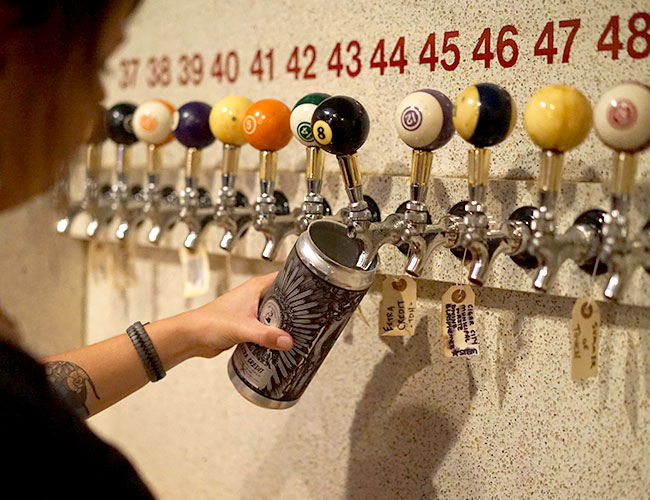
Filling a crowler at The Answer Brewpub
Somehow, I wound up at Mekong, the Vietnamese restaurant connected to The Answer Brewpub. There, I was served by the incredible bartender Quy Pham (RIP). I was crushing sours and dumplings and just enjoying the whole experience, in general.
My drinking partners for the evening were two of Richmond’s best-known brewery owners, as well as a local beer historian. From Mekong, we made our way next door to the back bar at The Answer. After one too many Joose crowlers, the brewery owners asked if I wanted to see their new multi-million dollar construction project, perhaps 30 minutes away in a neighboring county.
“Now?” I said. “It’s midnight.”
But they were serious. So, tipsy and adventurous, I headed out with the two brewery owners, the historian, and a fifth guy I assumed was friends with the brewery owners or the historian.
As we got closer to our destination, it became clear that everyone had assumed this fifth guy knew someone else. I thought he knew the brewery owners; the brewery owners thought he knew the historian; and the historian thought he knew me. But none of that was true. He was a complete stranger — he’d heard us talking and thought the trip sounded cool.
But here’s the beauty of the beer industry — no one got mad. In fact, we became fast friends. We continued to our destination, learning more about our new friend, and shared drinks and stories as we took a midnight stroll.
Hop Culture Turns The Wheel
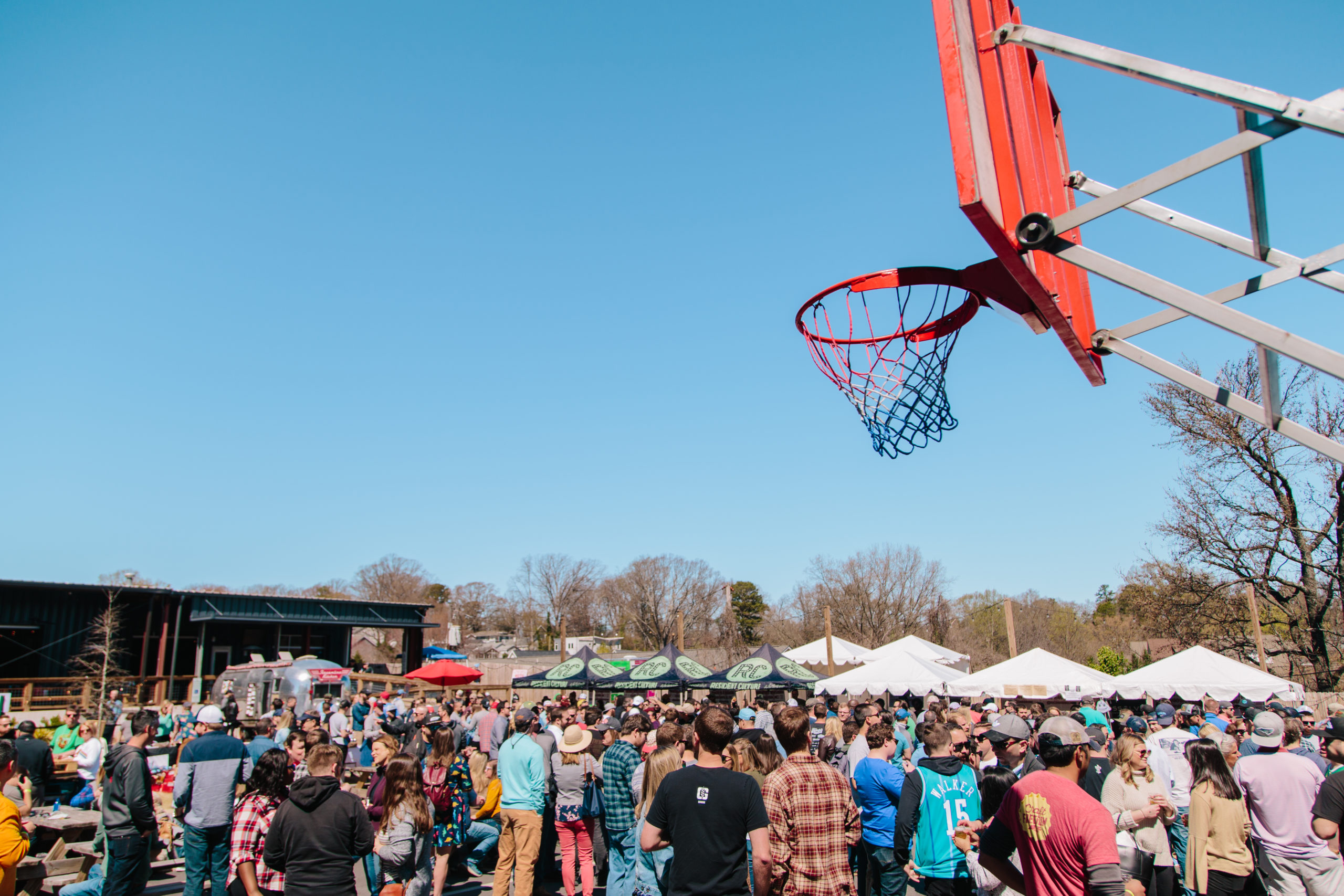
Juicy Brews March Madness
If you’re still with me, I hope it’s evident by this point that Hop Culture was a bit of a happy accident. Not that it didn’t take work — over the last four years, I’ve worked harder than I’ve ever worked in my life, and I think my team would say the same. But I never set out to start Hop Culture. I just wanted to write, and then I thought it’d be fun to write about beer, and now we’re here.
But over the last year, my priorities changed. In the last several months, I turned thirty and bought a house. It sounds so… suburban. And yet, that’s the reality of my situation. And I’m not upset. The parties, the late nights, the stumbling in the dark (both literally and figuratively) made an indelible impression, but…I’m growing up. Weird.
Over the past year, I’ve started to think less about my activities for the upcoming weekend and more about my plans for the upcoming year. And as I look toward the future for myself and my team, it’s extremely difficult to reconcile our present lifestyle with the one I want.
“Okay,” you say. “That’s why you bring on new talent. Get out of the trenches and take a managerial role. Let the young guns get their hands dirty.”
And that’s where my thoughts have been for the past year. But as I’ve recently learned, unless you set out with a plan, and proper funding, it’s extremely difficult to scale. Not impossible, but difficult. It’s like trying to turn chicken cacciatore into beef stroganoff halfway through a recipe.
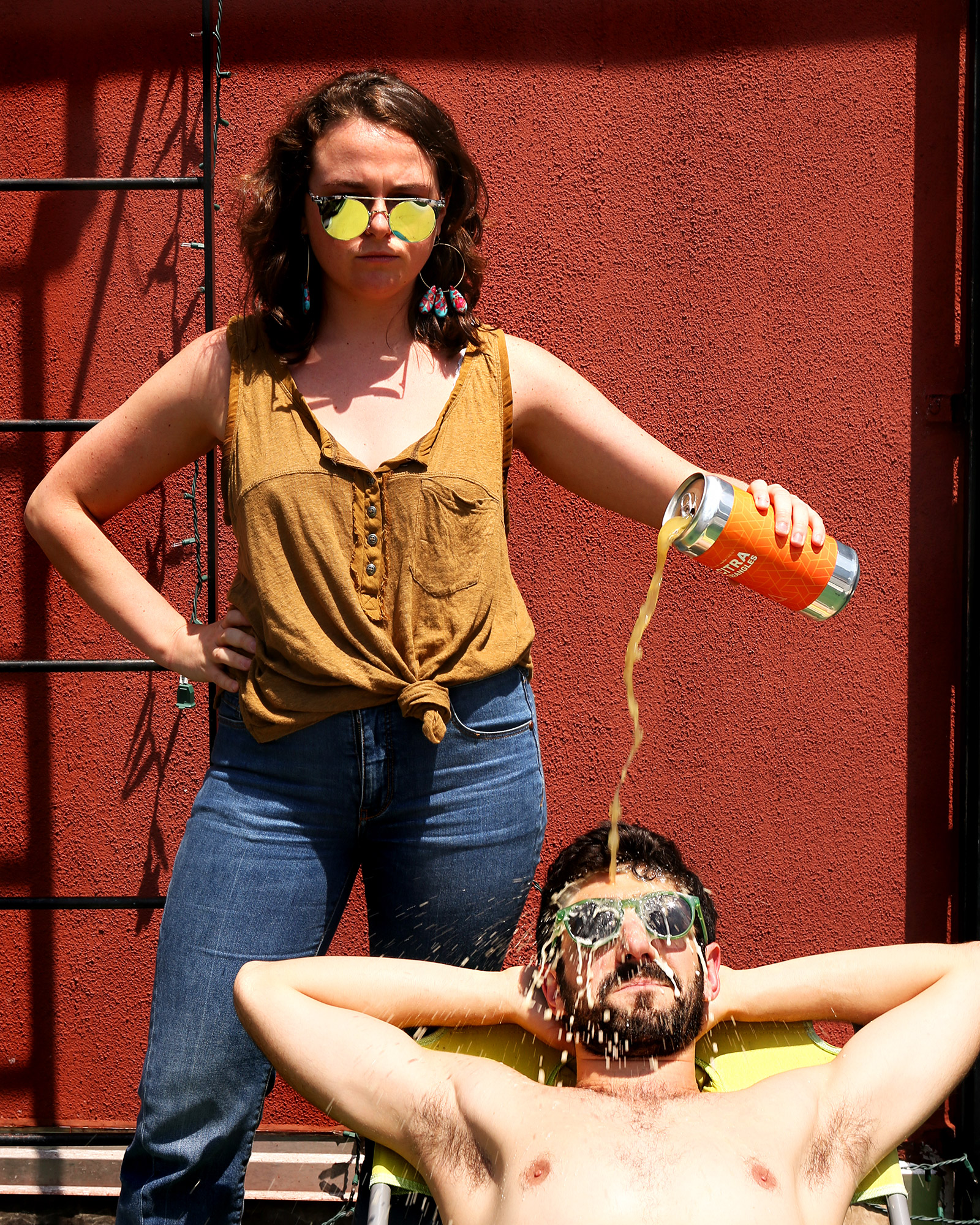
And so I found myself in a position where I knew I needed to grow the team, but didn’t have the resources to do it. Over many long plane flights and sleepless nights, I came to the understanding that if I wanted to achieve that aforementioned lifestyle for myself and my team — and if I wanted Hop Culture to not just survive, but thrive — I needed another path.
What Is Hop Culture’s Relationship With Next Glass?
So I began my search. Luckily, I wasn’t under any sort of deadline. Over the past couple years, the team and I worked against the odds to build an awesome little engine that supported us, our projects, and a great team of freelancers. I could afford to be choosy. I could steward my baby toward a solution that offered the greatest potential for a continuation of the mission, practices, and values we found important.
At first, I thought about approaching venture capital. I gathered my materials and started the research to find a great partner. But before I could send my first email, a Forbes interview changed my life.
Back in 2018, during a Brewers Association dinner at the Union Square Café, I met a Forbes writer who told me her friend in the food and drink section was looking for new contributors. What the hell, I thought. I can always do some more writing. So I threw my name in the hat and started contributing a couple articles a month, mostly highlighting underrepresented voices in brewing and the beer industry.
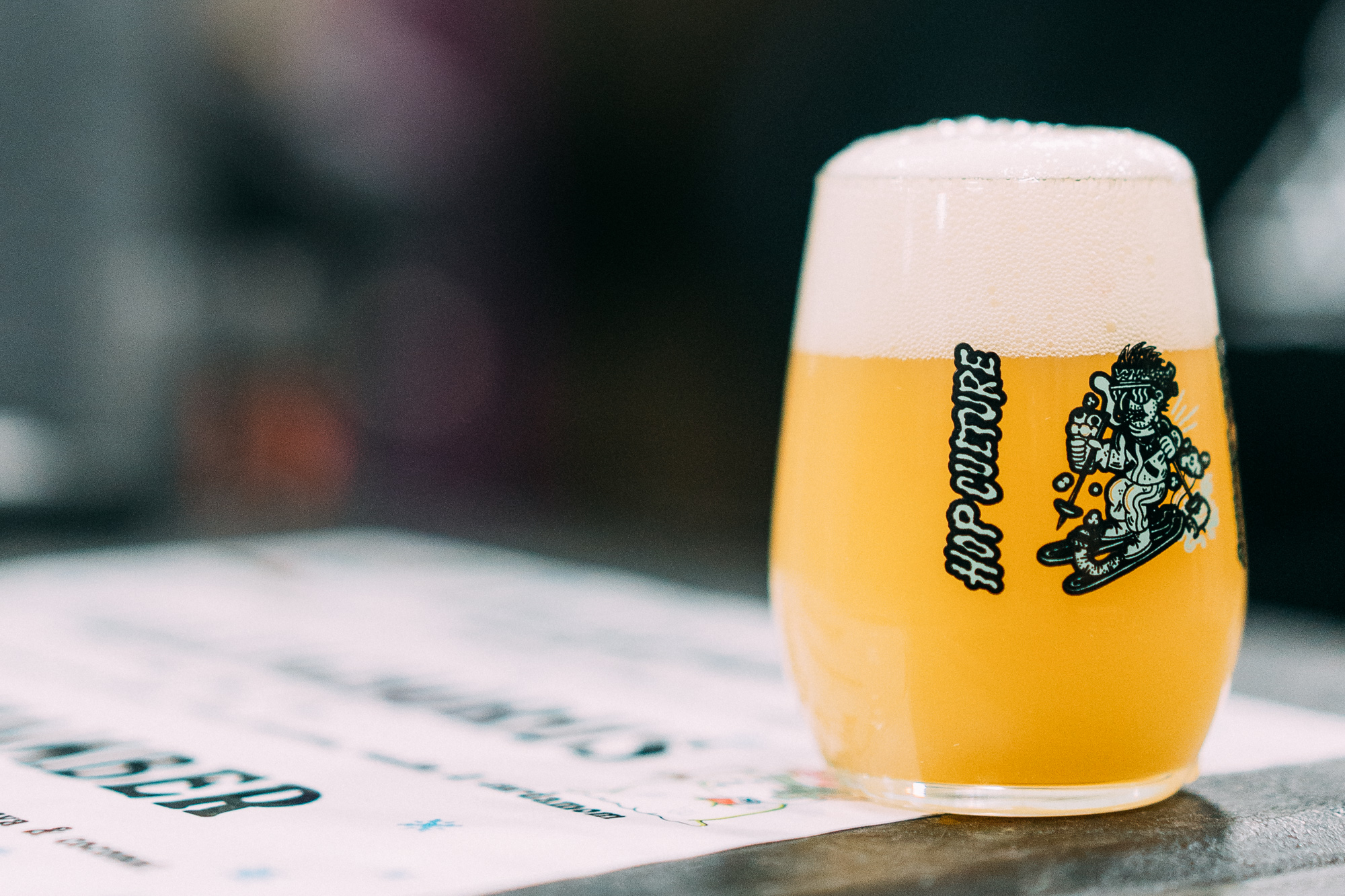
Juicy Brews Winter Invitational
Occasionally, I’d find a story with such national relevance that I needed to follow up. Such was the case when I heard that Next Glass, parent company of Untappd, had just hired a former Uber executive. I followed up with Next Glass’s PR agency and set up an appointment to interview Trace Smith, the young CEO of Next Glass. And hot damn if that wasn’t one of the most interesting interviews of my life.
What Is Next Glass?
If you’re like me, Next Glass has always been synonymous with Untappd, the seemingly-ubiquitous app that allows users to (sometimes inaccurately?) rate and review beers.
But in that interview, I learned that Next Glass — and even Untappd — defied my expectations. As did Smith, who might be one of the most intelligent people I’ve ever met.
In our conversation, I learned that Next Glass was so much more than the Untappd app — the real goal of the company is to bring the processes involved in getting beer from producer to consumer into one cohesive ecosystem. To this end, they not only own the Untappd app, but also Untappd for Business, BeerAdvocate, and Oznr (a platform that allows breweries to manage online sales and bottle/can releases) and received an investment from PSG — the same firm that backed Top Golf, Ironman, and Hulu — to develop new products and make strategic acquisitions to further build that ecosystem.
I liked Smith. I liked his vision. And I saw value in placing Hop Culture — functionally a content and event producer — with the single largest network of beer drinkers in the world. The Untappd app alone has 8 million users, and that number doesn’t include the user base of BeerAdvocate, Oznr, or any future Next Glass acquisitions.
With its focus on the beer industry, intelligent leadership, global presence, and backing from one of the country’s premier growth equity groups, I thought Next Glass could provide unparalleled opportunities for my brand.
It happened more quickly than I thought. But wouldn’t you know — just as I was impressed with Smith and his team, he was impressed with me and mine. Over the next several months, we engaged in a back-and-forth conversation about mission, vision, and values that culminated in an offer for Hop Culture to join the Next Glass family.
What Does The Future Hold For Hop Culture?
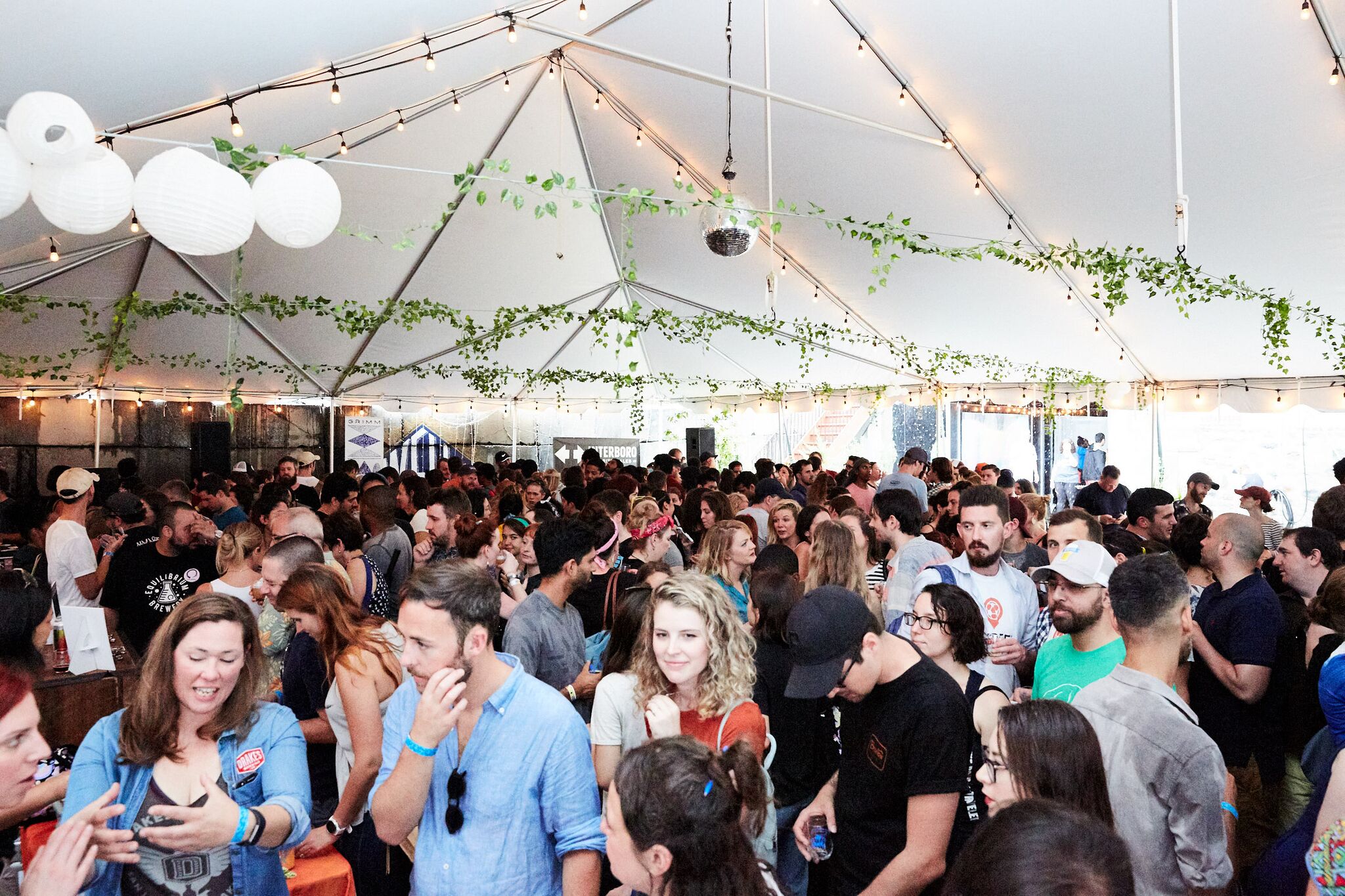
Beers With(out) Beards
There are a couple beautiful things about my relationship with Next Glass.
One: the entire Next Glass team — even the lawyers! — were fair and reasonable. I wholeheartedly trust Smith and the Next Glass team to steer the ship.
On a personal level, I’ll continue to oversee development for Hop Culture. Though I’ll also take on a new role as Creative Director for the Next Glass family of brands. Currently, this includes Hop Culture, BeerAdvocate, Untappd for Business, the Untappd app, Oznr, and whatever new additions to the family the future brings us. In the fall, I’ll head to business school to round out my education and (hopefully!) become an even more effective entrepreneur and leader.
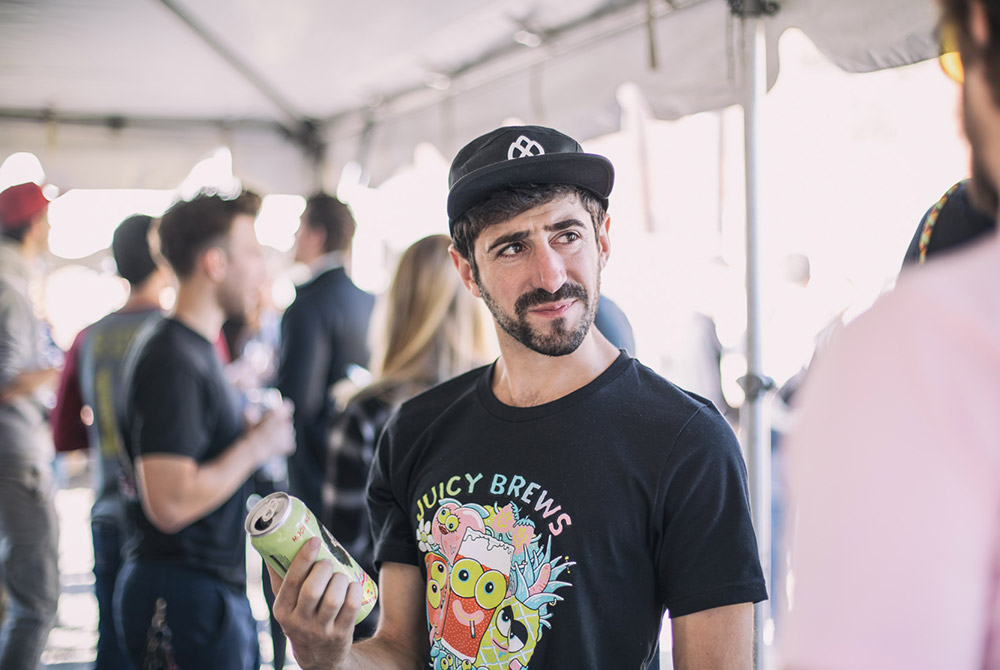
But perhaps most importantly, Hop Culture will now have access to the tools and resources we need to elevate our work. Insofar as I had goals when I started this project out of my apartment four years ago, I went out of my way to promote small, independent businesses and create a more fun, more inclusive beer industry. Over the years, we’ve integrated those desires into the very fabric of our company culture, and that’s not going to change. Next Glass bought Hop Culture not because of our past, but our future. They see the potential we have to make a difference in the industry and they support our endeavors.
Liked this article? Sign up for our newsletter to get the best craft beer writing on the web delivered straight to your inbox.

